
Careers with Animals
Putting Passion to Work

Careers with Animals
Putting Passion to Work
If you …
… a career or avocation with and for animals may be right up your alley.
Working with animals is a roller-coaster ride through life:the ups and downs are often satisfying but sometimes unpleasant; fun but sometimes dangerous; rewarding while physically and emotionally draining. Such a career or pastime requires commitment, especially if it involves daily contact with the animals of your choice, is less than glamorous, and doesn’t pay well or, in the case of hobbies or volunteer activity, doesn’t pay a salary at all.
Animal-related fields
There are thousands of animal-related jobs in dozens of career areas. Some require only a high school diploma; others need community college training, a four-year college degree, or masters or doctorate-level education. The field of veterinary medicine runs this gamut: veterinary receptionists and assistants may need only a high school diploma, veterinary technicians need community college or higher education; and veterinarians need at least a doctorate for general practice and additional advanced education if they specialize in a particular aspect of animal medicine or add animal law to their area of expertise.
Many of the career areas are obvious: livestock farming, veterinary medicine, and animal training come to mind. Not so obvious perhaps are species conservation, wildlife biology, aquaculture, biomedical research, and entertainment. Each of these areas needs a broad range of workers from caretakers who feed, water, and clean animal housing and remain alert to changes in animal behavior to veterinarians who provide medical care and biomedical scientists who translate animal physiology and behavior for everyone from scientists to pet owners.
Farming and ranching
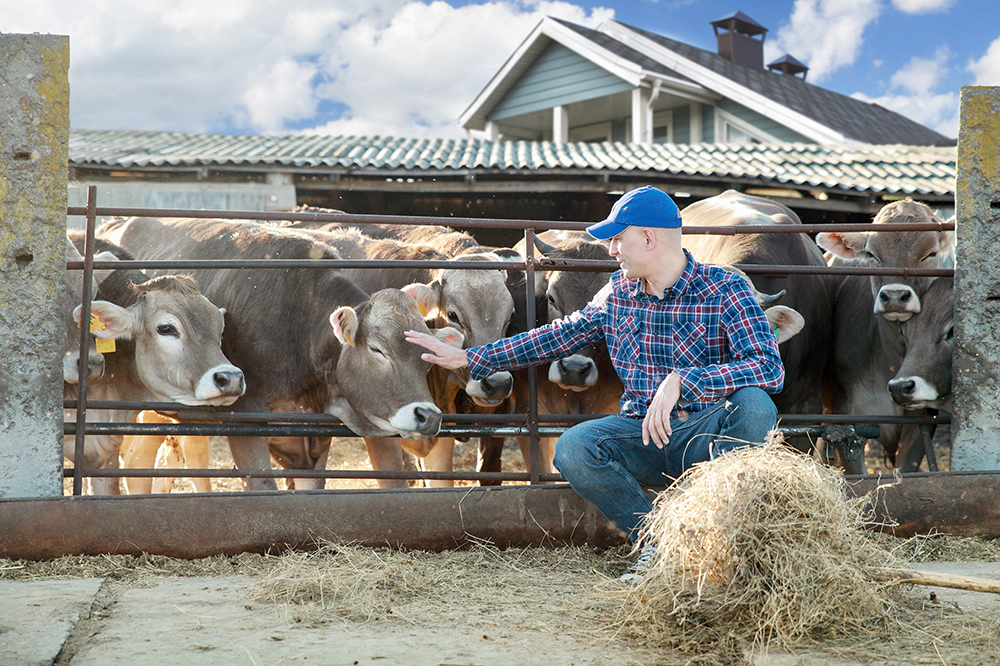 There were 78,000 jobs for farmworkers in 2012, and the number is projected to grow! There were 78,000 jobs for farmworkers in 2012, and the number is projected to grow!
|
Livestock farming includes raising sheep, cattle, chickens, pigs, goats, and exotic animals such as llamas and emus for food and fiber. While many who aspire to own or manage livestock farms first earn degrees in animal sciences, those who earn a high school diploma can find work as animal handlers and custodians. In 2012, the US Bureau of Labor Statistics reported more than 78 thousand workers employed on farms and ranches and projected an increase of 25 thousand farmworker jobs by 2022. The number of farm owners and managers is much larger: more than 930 thousand people in 2012 and a projected growth of 150 thousand additional jobs in the 10 year span.
Livestock farmers must be experts in animal management and care and students of animal behavior to maintain healthy herds or flocks and keep themselves and their animal safe. They need to know about species reproduction, nutrition, and housing and learn to balance all aspects of animal care so they can provide for the animals and maintain the profit necessary to take care of their families.
Equine farmers raise and train horses for ranches, racetracks, and carriage companies and for hobbyists who participate in horse shows, equine athletic events, rodeos, and other pastimes. Job seekers who love horses may find positions at farms, racetracks, boarding stables, carriage companies, living history farms and museums, and vacation ranches.
Veterinary medicine
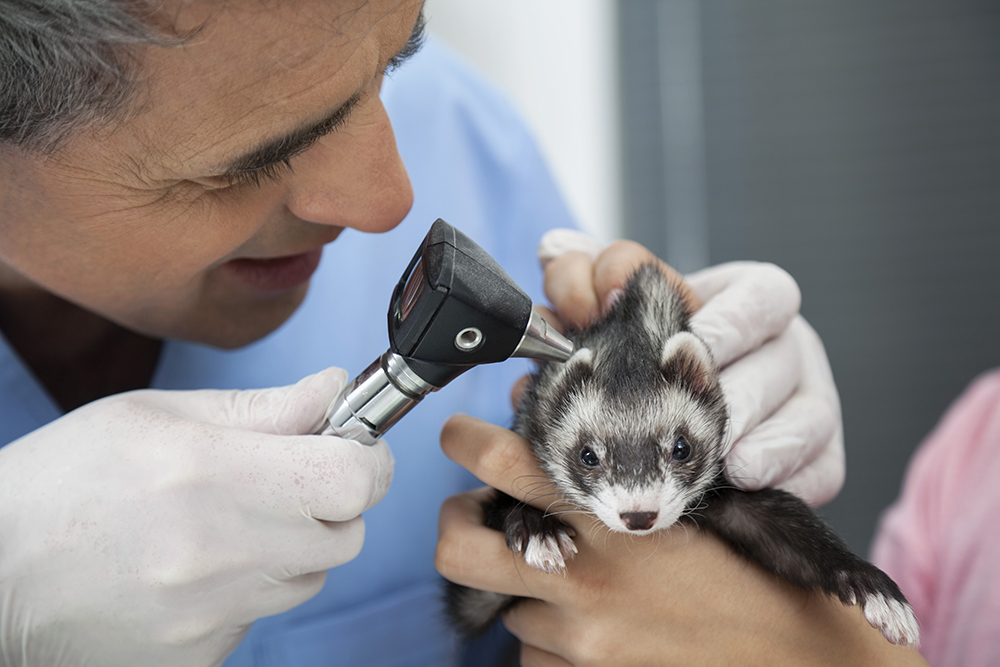 Veterinary medicine covers a wide range of skillsets and work settings. Veterinary medicine covers a wide range of skillsets and work settings.
|
Veterinary medicine includes the veterinarians themselves along with clinic employees such as receptionists, technicians, and aides; researchers who study animal nutrition, behavior, physiology, and diseases; laboratory workers and animal caretakers; and science advisors in agricultural colleges and animal businesses. Zoos, pet stores, circuses, living history farms, and companies that make animal food and equipment may hire veterinarians and other medical and support staff people for a variety of positions involving animal health.
Some research veterinarians work with animals to find cures for injuries and diseases that afflict both animals and people. They may house a colony of animals at a university and hire support staff to aid the researchers with animal care and observations. College students in animal science courses or tracks often use these jobs to get hands on experience with animals and to help them decide on a career direction.
Veterinarians may own or work in a general practice, treating pets and doing minor surgeries. Others choose large animal practices, zoo animal medicine, or select advanced education to become specialists in surgery, cardiopathy, orthopedics, cancer diagnosis and treatment, reproduction, emergency medicine and other medical disciplines.
Some veterinarians work in public health agencies at the national Centers for Disease Control or at state or local health agencies to diagnose and track diseases that devastate livestock or can spread from animals to humans.
One of the neatest organizations reaching out to young people who love animals and want a career with animals is Vet Set Go, The Vet Set Go is billed as " ... the first and only web community designed for aspiring veterinarians."
According to the US Bureau of Labor Statistics, there were 70,300 veterinarians in 2012 with projections for an additional 31 thousand by 2022. Veterinary staff (including laboratory animal caretakers) numbered more than 159 thousand with projected growth of 54,700 in the same decade.
Biomedical research
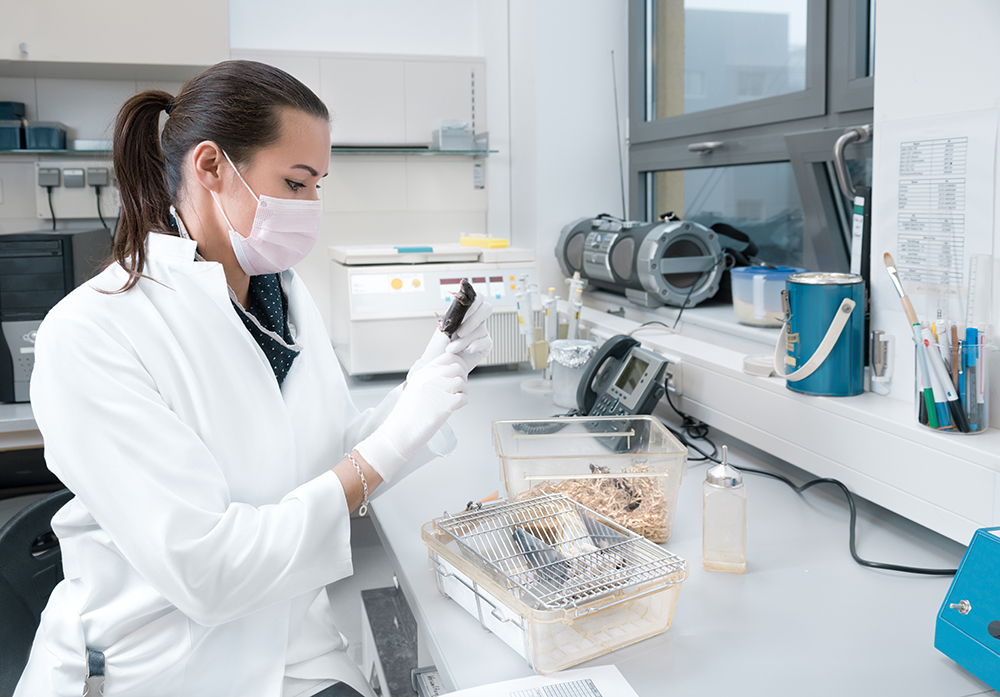 Biomedical research involving animals often has an impact on human health. Biomedical research involving animals often has an impact on human health.
|
Biomedical research is a broad term that includes the use of animals in carefully designed studies to learn about diseases that affect humans and other animals, to test medications, in feeding trials to test ingredients, and to track the influence of medications or procedures on certain species or populations. Some of this research involves hands on care and treatment of animals and some require literature reviews or DNA testing.
Careers in biomedical research range from animal caretakers and technicians who aid the master’s degree and PhD veterinary scientists. Animal caretakers are the front lines in the lab as they are in zoos, animal hospitals, farms, and other settings and must be able to detect changes in the condition and behavior of the animals in their charge.
Much biomedical research involving animals has an impact on human health. In these efforts, veterinarians, microbiologists, geneticists, physicians, psychologists, and masters level scientists often work together to design and implement work with wide-ranging potential.
Animal training
Animal training does not offer as many opportunities but requires less intensive education than some other fields. Some trainers may provide animals for movies or television or modeling or advertising agencies. Others reach the top of their profession with circus animal acts or stage shows.
Many animal trainers get their training as protégés of established trainers or by accumulating knowledge and experience while training their own dogs or horses. Some trainers take their skills on the road, giving seminars throughout the country, some establish training schools, and some do both. Many specialize in a particular type of training, i.e., hunting dogs, obedience dogs, and rodeo horses, and some are generalists who help owners help their dogs or horses to conquer fears, fix unacceptable behaviors, and get started on the right paw or hoof for whatever their job will be.
 Many animal trainers get their training as protégés of established trainers or by accumulating knowledge and experience while training their own dogs or horses. Many animal trainers get their training as protégés of established trainers or by accumulating knowledge and experience while training their own dogs or horses.
|
Some animal trainers work for organizations or agencies such as Canine Companions for Independence or Pilot Dogs that train and place service dogs that aide handicapped owners; police dogs and military dogs that track criminals, sniff out contraband, and protect their handlers; and search and rescue dogs that work disaster sites, track lost hikers and wandering children, and locate bodies of accident victims.
Others work with exotics such as marine mammals, big cats, and non-human primates. These trainers may teach behaviors on cue for entertainment or to make sure they can handle animals as quickly and safely as possible when moving them around or providing them with medical attention.
Conservation jobs
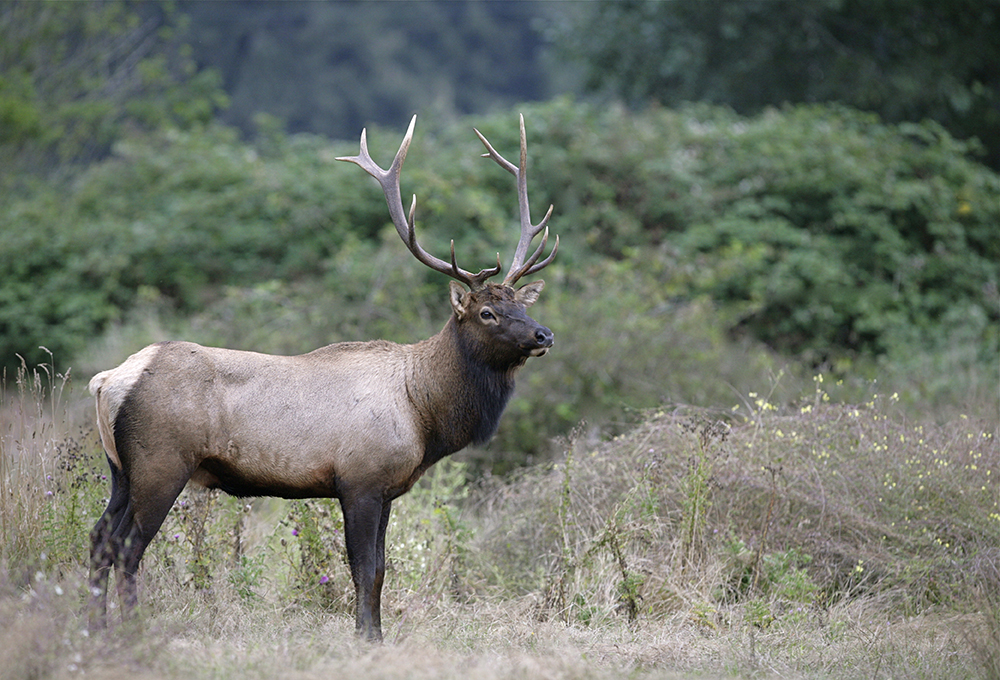 Wildlife agencies keep track of animal populations and regulate hunting, fishing, and trapping. Wildlife agencies keep track of animal populations and regulate hunting, fishing, and trapping.
|
Each state has its own wildlife agency that keeps track of animal populations and regulates hunting, fishing, and trapping so that these activities do not threaten wildlife populations. Much of the money for their work comes from taxes paid on hunting and fishing equipment. Jobs in these agencies range from field workers who help homeowners minimize damage from wildlife, study animal diseases, and enforce fish and game regulations to office work entailed in keeping records and writing regulations to enforce state and federal wildlife laws.
The federal government hires rangers and other workers to manage and staff national parks and wildlife areas, enforce regulations, deal with injured animals, conduct educational programs, and patrol the parks for animal problems. Many of these employees do not handle animals but keep track of population shifts, environmental damage, and interspecies impact. Some, however, help orphaned or injured animals and trap nuisance animals.
Federal and state agencies work with private organizations such as the Audubon Society, Ducks Unlimited, and various other groups that protect habitat for species such as elk, trout, and wild turkeys. These private organizations harness the energy and dedication of professional biologists and environmental scientists and have access to a large contingent of field support from members who hunt, fish, trap, watch birds, hike, trail ride, and otherwise enjoy the outdoors.
Wildlife management jobs generally require a college education, and some require a master’s degree, but anyone with wildlife experience and knowledge can volunteer time to help at a local nature center or join a wildlife rehab group.
Zoos and aquariums
Along with animal trainers, veterinarians, and veterinary technicians, zoos and aquariums need specialists to help design exhibits that mimic natural habitats and keep animals safe, nutritionists to make sure each species’ diet is sufficient, and researchers who work on breeding programs to increase numbers of endangered species and control breeding of common species.
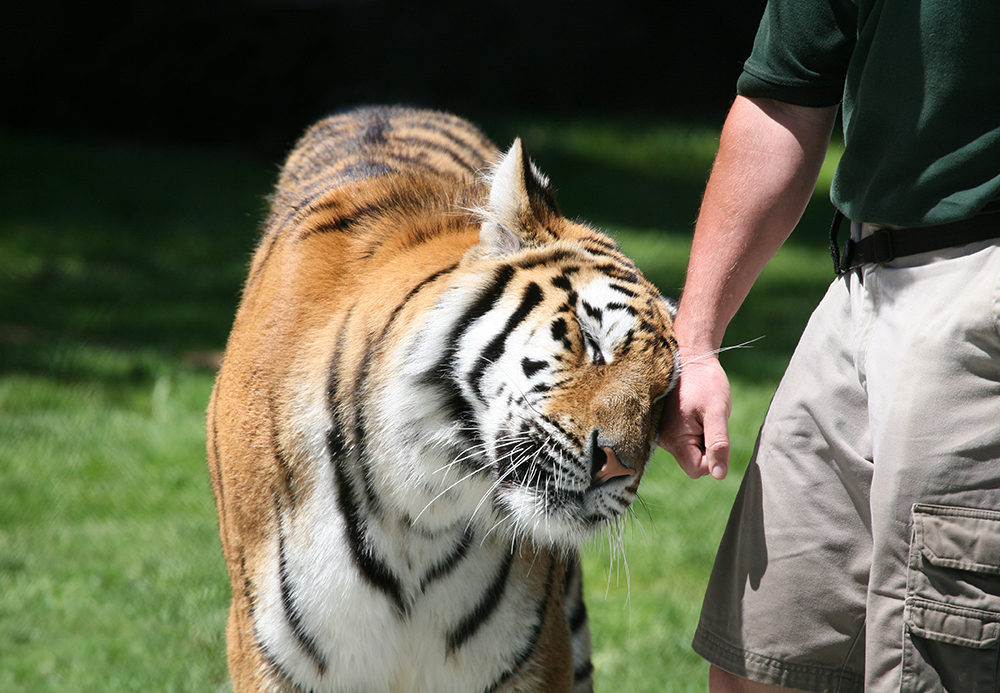 Today's zoos increase our understanding and appreciation of animals. Their efforts help to sustain and recover threatened species. Today's zoos increase our understanding and appreciation of animals. Their efforts help to sustain and recover threatened species.
|
Zoos and aquariums also need hundreds of workers who do not work directly with or for their animals but staff on-site stores and restaurants; keep the grounds clean and attractive to visitors; and design educational signs and exhibits. These jobs can be a stepping stone to a career with animals for an ambitious animal lover.
Pet care jobs
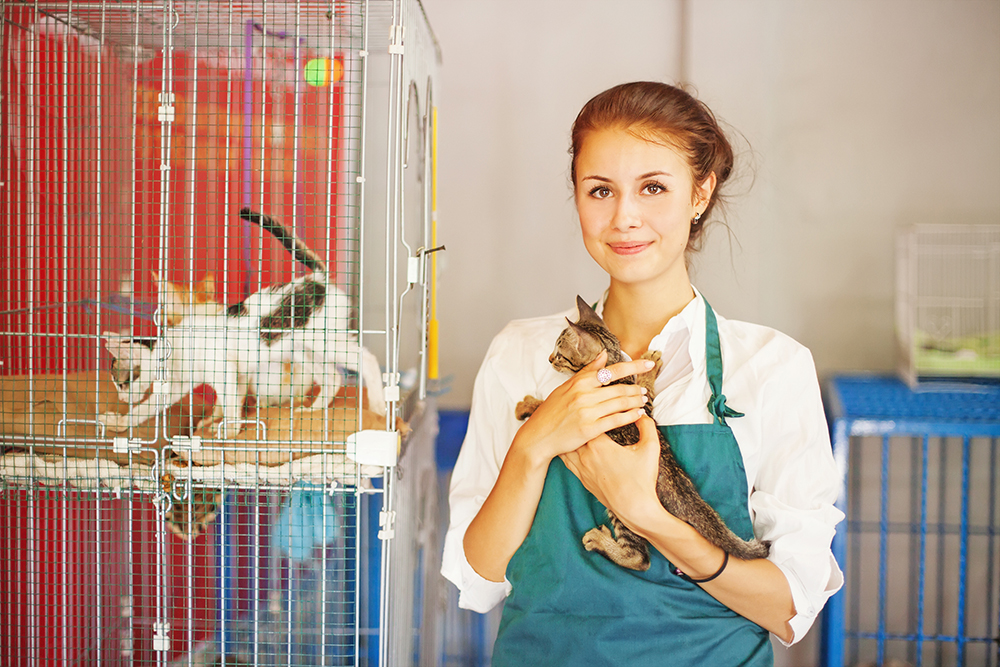 Groomers and boarding kennels, dog walking and sitting businesses, trainers, day care centers, and pet stores regularly hire entry-level workers. Groomers and boarding kennels, dog walking and sitting businesses, trainers, day care centers, and pet stores regularly hire entry-level workers.
|
Pets will always remain the primary connection that animal lovers have with another species, and as a result, there are thousands of opportunities to operate or work in a business that supports pet ownership. Grooming shops, boarding kennels, dog walking, pet training businesses, day care centers, pet sitting, and pet stores need entry level workers and experienced employees and can provide the hands-on experience necessary for someone to open his own shop.
Horse owners also need service businesses such as boarding stables, riding instructors, and farriers. Boarding stables need caretakers for the horses and janitors for the horse stalls. Horse owners can parlay their experience with their animals into a job in a tack shop, boarding stable, horse farm, or other position.
Opportunities are not as widespread for working with birds, fish, or exotic species. Some jobs are available in specialty stores, veterinary clinics, conservation organizations, animal parks, circuses, etc., but such jobs are limited.
Animal control
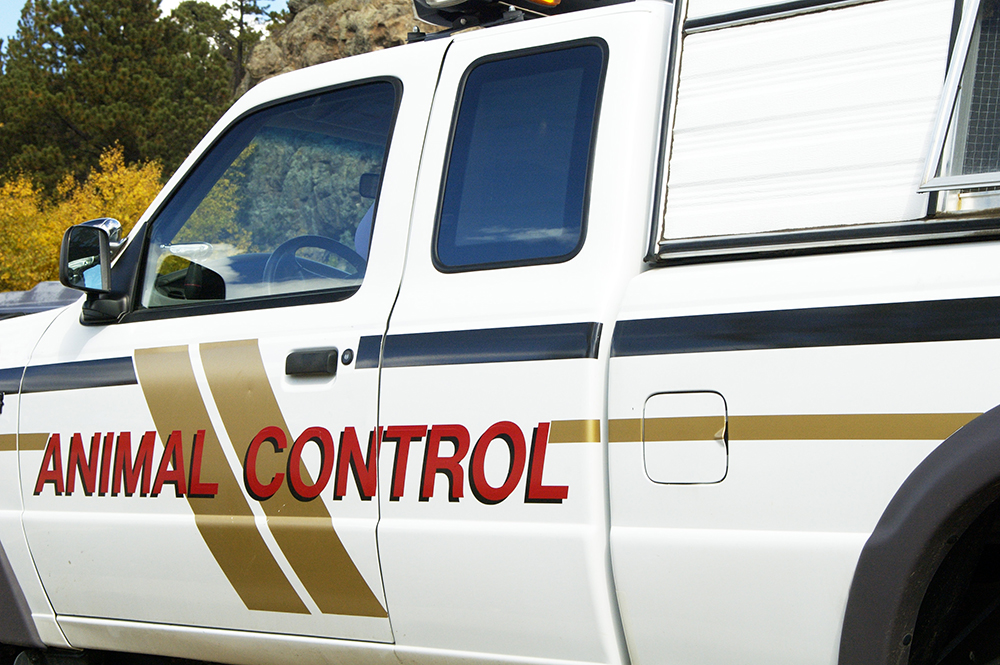 Animal control authorities include dog wardens, police officers, and humane agents. Animal control authorities include dog wardens, police officers, and humane agents.
|
Local and state governments enact laws, regulations, and policies to govern animal treatment, provide for community safety, and avoid neighborhood clashes and misunderstandings.
Gone are the days of animal control by the local dog catcher. Today, animal control authorities include dog wardens, police officers, and humane agents who need training in animal capture techniques, animal law enforcement, and animal management and care. Animal control personnel often work with veterinarians and health department officials to aid in controlling disease outbreaks.
Ranging from a mandate to confine dogs on the owner’s property and keep them under control off the property to requirements for adequate food, water, and shelter and prohibitions on abuse and neglect, these laws fall under the authority of animal control agencies and humane societies. In some jurisdictions, humane societies perform the duties of dog wardens, in some dog wardens perform the duties of humane agents, and in some they are separate entities.
As with other animal care careers, jobs in animal control agencies and shelters cover a wide swath of education requirements. Although four-year college degrees are not generally required, animal control agents at all levels often require additional training beyond high school, including attendance at law enforcement academies, certifications in animal capture techniques, and knowledge of animal behavior, investigative procedures, animal diseases, and animal identification. Depending on local or state laws, they may get this education at vocational schools, two-year colleges, or specialized training programs such as those offered by the National Animal Control and Humane Officer Training Academy.
Animal control agencies also use behind the scenes workers as caretakers for impounded animals and office workers who help re-unite confiscated dogs with their owners. In addition, these agencies may hire or contract with local veterinarians and animal behaviorists and dog trainers who treat sick and injured dogs and cats held by the agency and help prepare unclaimed dogs for placement in new homes.
Conclusion
There is obviously much overlap in animal careers, a factor that allows an animal lover with a basic education in one area to function in several areas. For example, although the species of animal and the work environment differs, a veterinarian or veterinary technician can work in a clinic, a research laboratory, an animal control agency or humane shelter, a zoo or circus, etc. or may move from one to another with a little extra education or training. There’s also much room for advancement for those who start as caretakers straight out of high school and are willing to attend a two-year or four-year college program to become a veterinary assistant or vet tech or complete certification through a professional association. For a look at education for a progression of certificates and degrees, visit Animal Care Colleges and Schools in the US.
 Discover Animals is a web-based educational resource offered by the NAIA
Discover Animals is a web-based educational resource offered by the NAIA